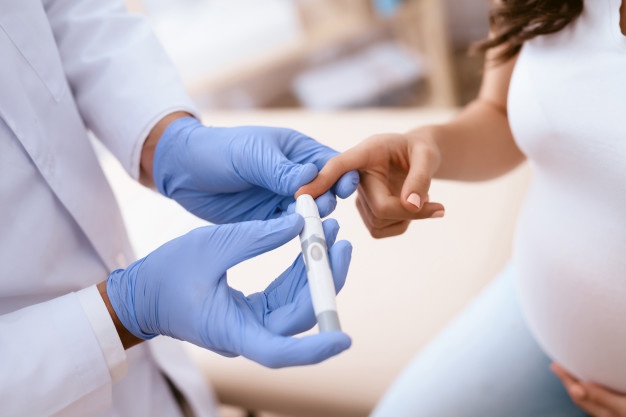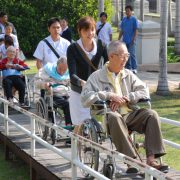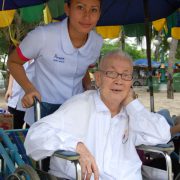Diabetes is a lifelong condition where your body does not produce enough insulin, or your body cannot use the insulin it produces.
Your body needs insulin to change the sugar from food into energy. When you don´t have enough insulin, the sugar stays in your blood so that your “blood sugar level” gets too high.
High blood sugar levels over long periods of time can cause complications such as: damage to blood vessels, kidneys, and difficulties with circulation.
Signs and symptoms
A patient presents with classic symptoms:frequent urination, excessive thirst, unusual hunger, weight loss. Some patients are asymptomatic for years.
Other symptoms that might suggest Diabetes include blurred vision, tiredness or lack of energy, tingling / numbness of the feet, infections, rashes or skin irritations (itching) that are slow to heal.
Diagnosis
The following tests are used for diagnosis:
– Fasting plasma glucose (FPG) is greater than or equal to 126 mg/dL on 2 occasions.
– Random glucose is greater than or equal to 200 mg/dL and classic symptoms of diabetes mellitus (frequent urination, excessive thirst, unusual hunger, and weight loss).
There are three major types of diabetes:
– Type 1 diabetes is usually diagnosed in childhood. The body makes little or no insulin, and daily injections of insulin are needed to sustain life.
– Type 2 diabetes is far more common than type 1 and makes up most of all cases of diabetes. It usually occurs in adulthood.
– Gestational diabetes is high blood glucose that develops at any time during pregnancy in a woman who does not have diabetes.
Medical care
The goals in caring for patients with diabetes mellitus include complications monitoring, dietary and exercise modifications, medications, appropriate self-monitoring of blood glucose and laboratory assessment.
How to take care of your self:
Diet : A high-carbohydrate (with modest simple sugar intake in the context of a mixed meal), low-fat (especially low in saturated fat), low-cholesterol diet is recommended. Most patients with type 2 diabetes mellitus will need caloric restriction.
Exercise : Exercise can help control your weight and lower your blood sugar level. It also lowers your risk of heart disease, a condition that is common in people who have diabetes. Exercise can also help you feel better about yourself and increase your overall health.
Stop Smoking : People with diabetes already have a greater risk of developing health problems like heart disease, stroke, kidney disease, nerve damage, foot problems, and many others, smoking makes the risks that much greater.



















